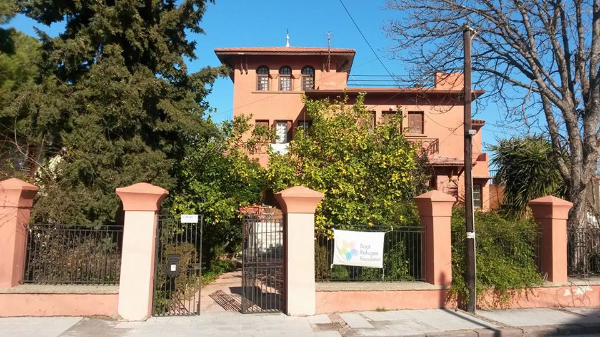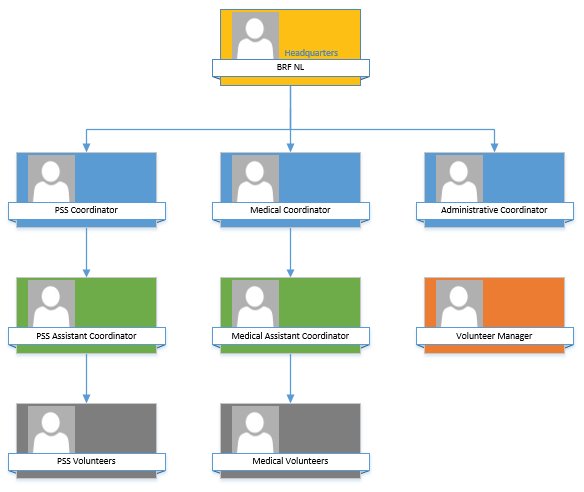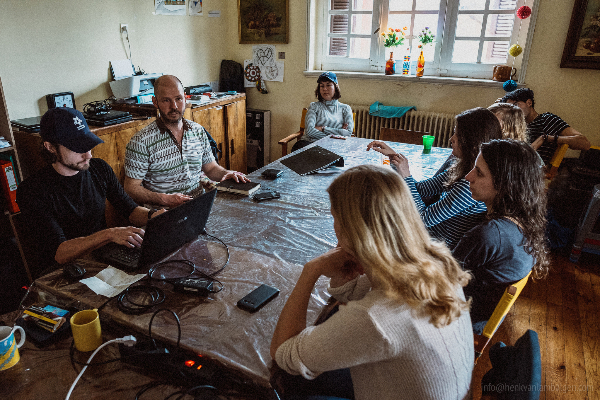Camp Lesbos - Life in the Refugee Camps: I. Introduction
I.I. Background
Spending a year and a half in Africa I have picked up a lot about the current state of the world and place of humanity in it. At the time of returning to Europe (December 2016) I still had a couple of months to fill before I would finally resettle in my hometown of Amsterdam. Planning on what to do with my time I figured I wanted to spend it with 'doing something good for this world'. Researching how, I found out I had the opportunity to do this with doing aid-work with the refugees in Lesbos, Greece. I took the opportunity and before I knew it was on the plane to work as a psycho-social volunteer working for an NGO called 'the Boat Refugee Foundation'.
Being and working on Lesbos for nine weeks, I have seen and experienced a good deal of what is actually going on in the refugee camps. It also has given me a clearer perspective of the aid-work scene on Lesbos, which is built up out of many cogwheels, screws, nuts and bolts that constitute the multi-faceted machine of humanitarian aid.
And it has been an intense ride - seeing and experiencing the good, the bad and the ugly that current-day Lesbos has to offer. The whole has left an impression that will stay with me for the rest of my life - it being unlike anything I had seen before.
The situation on Lesbos changes constantly. This document is written and based on a specific time-frame, and gives an overview of what was going on at that particular time (Jan - Apr 2017). Regardless the changes that have happened since then, this document keeps its worth as a 'historic snapshot' in time. But despite the passage of some time a lot is still the same. This is especially so in terms of the difficulties the refugees face every day - which is in not having their basic needs met while lacking the necessity of a fully functional medical system. Especially on the level of psychological support the refugees are still dealing with a reality in which they are completely left on their own, having to find their own (often destructive) ways to alleviate their psychological suffering.
While this document is considerably extensive and detailed, there are naturally many more facets, perspectives and details to the whole system that is the refugee crisis in Lesbos than what I (could have) described here. And so the aim of this text is to give a relatively concise overview of what the actual living conditions of the refugees are living in their camps, and how they react to their circumstances. I tried to be as succinct and specific as possible, without omitting what I see as crucial for the understanding of what the situation of Lesbos is like at the moment.
This document consists of five parts. The first part is the introduction, the second part covers the situation for the refugee children, women and men specifically (while shedding a light on two of the three camps where BRF works - Kara Tepe and Caritas), the third part is about notorious Moria, the fourth part covers the refugees' past, future and present, and the fifth part consists of conclusions and added extras.
This text is dedicated to the refugees in the world in general, and to the ones in Lesbos in particular - in the hope that it may be a particle in the process of creating better world where we live and honor the principle of dignity for all.
Let's start.
I.II. BRF & My Involvement
On Lesbos there are many NGOs present and active (no less than 150), and the size and influence of these NGOs varies widely: from the huge, influential and globally active (like UNHCR and Doctors Without Borders) to the small and specific (like Israaid and RSP – with sometimes no more than three or four members present). Each NGO tries to do more or less their own thing: from handing out clothing to assisting the refugees’ with legal matters to aiding in search and rescue operations to providing food or entertainment - and everything in between.
My personal involvement in Lesbos was through a mid-sized Dutch NGO called ‘Stichting Bootvluchteling’ aka the ‘Boat Refugee Foundation’ (BRF). The mission of BRF on Lesbos is twofold: giving the refugees medical and psychosocial support. The medical team provides first-aid medical care. The psychosocial support (PSS) team provides (light) psychological and educational support while also providing some distraction from daily life through hosting excursions and art, movie and board game nights.

--- ‘The Mansion’, volunteer house and headquarters of BRF on Lesbos
BRF is a straightforward organization when it comes to hierarchy and the division of responsibilities. The top is headed by ‘BRF headquarters’ operating from the Netherlands. One step down the line you’ll find three coordinators (all present on Lesbos): the PSS coordinator, the medical coordinator and the administrative coordinator. The PSS and medical coordinators are mainly responsible for the functioning and well-being of their teams. The administrative coordinator is responsible for the finances and administrative matters (cars, internet etc.) plus being the central point of communication and reference for the translators in the camps. All three coordinators have regular meetings with other NGOs and people of importance in the field (for example camp management). They also keep up to date with what happens and moves on the island.
The third layer in the BRF hierarchy consists of the assistant coordinators (who assist and support the coordinators) and a volunteer manager who is responsible for keeping the volunteers happy (like in making sure everyone does his/her dishes and ensuring that sure the house looks cosy). The last layer is built with a team of volunteers with either a medical background (medics, GPs, nurses) or a PSS-related background (like psychologists, teachers and pedagogics).

--- The hierarchical structure of BRF
My official job was being the assistant coordinator of the psycho-social support (PSS) team. Being the assistant coordinator I supported the PSS coordinator with administrative and organizational tasks while taking the role of PSS team-leader when the coordinator himself wasn’t present. Further one also functions as an extra pair of eyes and ears and have regular meetings with the coordinator to discuss the effectiveness of the shifts and the functioning of the PSS team. Other tasks I carried out were: giving the weekly ‘Psychological First Aid’ presentation to new BRF team members (which basically gives a global overview of how to function as an aid-worker in crisis situations while also instructing how to give light psychological support) and giving weekly presentations on panic attacks to the refugees in camp Moria.
My main job was being ‘the head of teaching’: creating and teaching the English teaching program. As there was practically nothing in this regard when I arrived on Lesbos I took it on to create and form this ‘pillar’. This within the know that English is a life-skill that empowers on many levels - down to the very level of pure survival.
Finally, I participated in the PSS shifts (for the full shift-list, see chapter V.II).
_tn.jpg)
--- BRF meeting with the PSS team (photo: Henk van Lambalgen Photography)